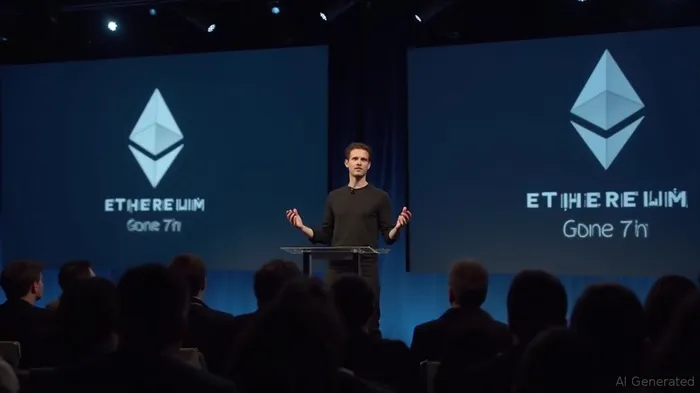Ethereum Founder Calls for Marketing Push Amid Token's Lagging Performance
Alon Muroch, the founder of SSV Labs, which contributes to the second-largest Ethereum staking infrastructure provider, SSV Network, has expressed concerns about the current state of Ethereum. Muroch, who has been involved with Ethereum since its early days, is particularly troubled by the token's lackluster performance and the widening gap between the Ethereum blockchain and its native token, ETH.
Muroch believes that the negative feedback Ethereum is receiving is largely due to the token itself, rather than the underlying technology. He argues that the Ethereum community needs to recognize this divergence and prioritize addressing it, as it poses a significant risk to the ecosystem. With 100,000 Ethereum validators securing around 10% of all staked ETH, Muroch is deeply invested in seeing the token's price rise.
Muroch's sense of urgency is evident as he discusses the challenges facing Ethereum. He notes that the community has traditionally paid little attention to narratives, marketing, and public relations, but that this approach is no longer viable. He emphasizes the need for a compelling narrative that explains why traditional financial users should hold ETH, given the competition from other smart contract platforms like Solana, Cosmos, and Polkadot.
Muroch argues that Ethereum's technology remains innovative and that the roll-up-centric roadmap has proven itself. However, he acknowledges that the token's performance is lagging behind, and that this divergence is risky for Ethereum. He suggests that the challenges Ethereum faces are not technological, but rather related to narrative and marketing.
Muroch believes that Ethereum's role as the forefront of decentralization is still relevant, but that the community needs to do more to attract value back to the token. He suggests that Ethereum should position itself as the trust and security layer for the entire internet of value, and that this could provide a compelling reason for users to hold ETH.
Muroch also discusses the concept of "based applications," which are services, protocols, and applications that run on Ethereum validators. He argues that these applications benefit from the superior level of security provided by the base layer, and that Ethereum receives compensation for this security, rather than having value extracted from it. He believes that this approach is around 95% cheaper than other security solutions, and that it is aligned with Ethereum's goal of creating more value for token holders.
Muroch's views on Bitcoin are also clear: he sees it as legacy technology that lacks the capabilities of smart contracting. He argues that Ethereum's validator set has superpowers, and that it is the largest, most diverse, and decentralized validator set on earth. He believes that Ethereum's security and decentralization make it a strong candidate for the trust and security layer of the internet of value.
Muroch's concerns about Ethereum's future are not unfounded. The token's performance has been lackluster, and the community is divided over its direction. However, Muroch's passion for Ethereum and his belief in its potential are evident, and he is committed to finding a way forward for the ecosystem. His views on the need for a compelling narrative and the potential of based applications provide a roadmap for Ethereum's future, and his insights into the challenges facing the ecosystem are valuable for anyone invested in its success.

Quickly understand the history and background of various well-known coins
Latest Articles
Stay ahead of the market.
Get curated U.S. market news, insights and key dates delivered to your inbox.



Comments
No comments yet